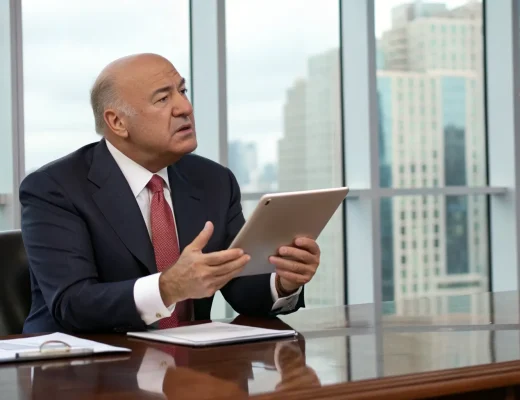The Trump administration has removed former Missouri Congressman Billy Long from his position as IRS Commissioner after a tenure of less than two months. This sudden leadership change marks the latest in a series of management reorganizations at the federal tax collection agency.
Long, who previously represented Missouri in Congress, had barely settled into the role before the administration decided to make this personnel change. The brief duration of his appointment raises questions about the administration’s strategy for the tax agency’s leadership.
Pattern of Leadership Instability
This removal is not an isolated incident but rather part of what appears to be a pattern of
frequent leadership changes at the Internal Revenue Service under the current administration. The constant rotation of top officials may impact the agency’s ability to maintain consistent policies and operations.
The IRS, responsible for collecting approximately $3.5 trillion in tax revenue annually and processing more than 240 million tax returns, faces challenges maintaining operational continuity amid these frequent leadership transitions.
Tax policy experts note that such rapid turnover at the commissioner level can disrupt ongoing initiatives and create uncertainty for both agency employees and taxpayers.
Potential Impacts on Tax Administration
The timing of this change comes during a
critical period for the tax agency. With
tax filing season approaching and ongoing implementation of tax code changes, stable leadership is typically considered valuable.
Former IRS officials have expressed concern that frequent leadership changes can affect:
- Long-term strategic planning for tax enforcement
- Implementation of technology modernization efforts
- Employee morale and retention
- Consistent application of tax policies
“Continuity in leadership is important for an agency with the complexity and scope of the IRS,” a tax policy analyst familiar with the agency’s operations explained. “Each transition requires time for the new commissioner to get up to speed on ongoing initiatives.”
Administration’s Tax Agency Strategy
The White House has not provided detailed reasoning for Long’s removal or named a permanent replacement. This leadership vacuum comes as the IRS
faces several major challenges, including technology upgrades, staffing shortages, and implementation of tax law changes.
Congressional oversight committees have begun to question the administration’s management approach to the tax agency. Some lawmakers have requested briefings on the rationale behind these frequent changes and how they align with the administration’s broader tax policy goals.
The IRS, which operates under the Treasury Department, plays a central role in government operations by
funding federal programs through tax collection. Leadership stability at the agency has historically been viewed as important for effective tax administration.
As the search for a new commissioner begins, the agency continues to operate under acting leadership. Tax professionals and policy observers will be watching closely to see who the administration selects as Long’s replacement and whether this next appointment will bring more stability to the critical government agency.







